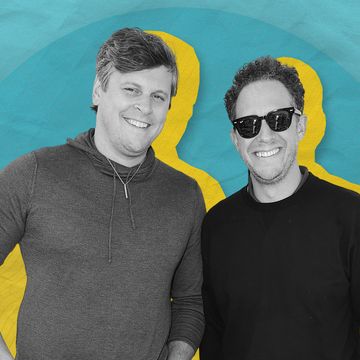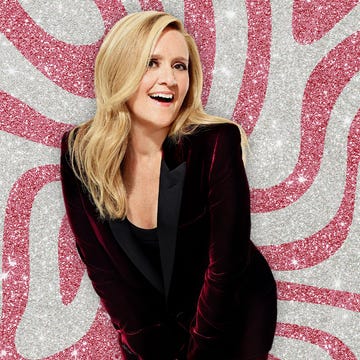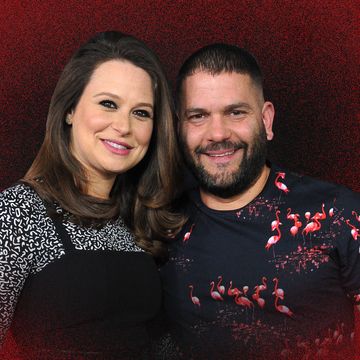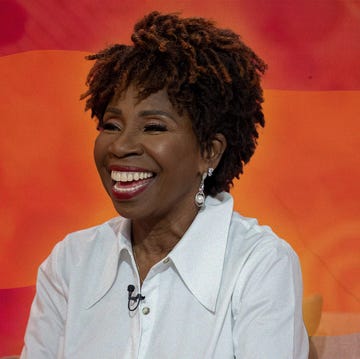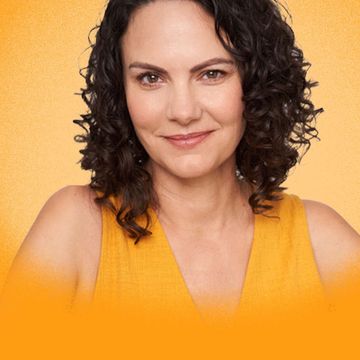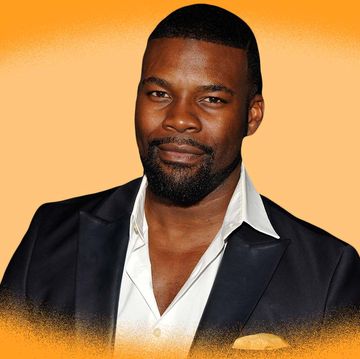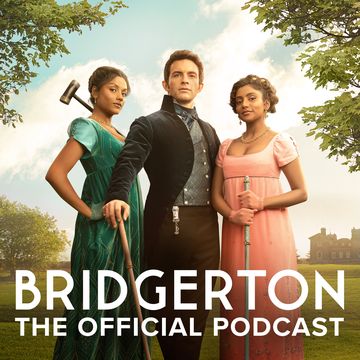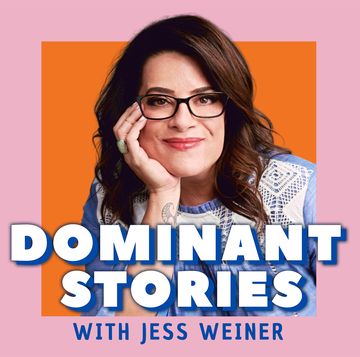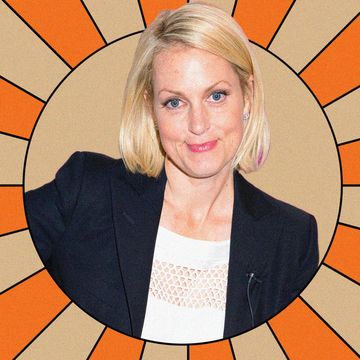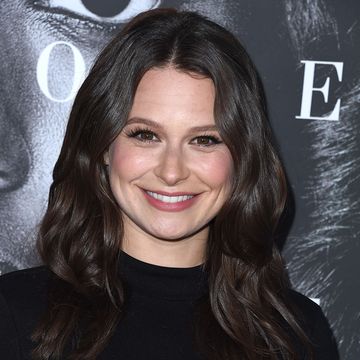On the heels of successful nonfiction podcasts like Katie’s Crib, Go Ask Ali, Criminalia, and The Laverne Cox Show, Shondaland Audio is venturing into its first-ever scripted podcast: #Matter, an eight-episode series about the aftermath of police brutality from writer, director, and producer Dylan Brown.
The story follows Gerald Hayes, who, after witnessing his teenage son, Niles, being brutally beaten by police officers, makes a split-second decision that leads to Gerald being trapped in a building with one of the officers. As the situation progresses and the press begins to point fingers at Niles, Gerald implements social media as a means to fight back and fight for the rights of his son. The gripping narrative is told through the lens of investigative journalist Kate Bell, who returns to that fateful afternoon a year later via interviews and found surveillance footage.
Yesterday, the casting was announced for the series, with Amin Joseph — who you may recognize from FX’s Snowfall — leading #Matter as Gerald, newcomer Nile Bullock voicing Niles, and longtime TV actor (including a guest role as Gemma Walsh on How to Get Away With Murder) Jennifer Christopher stepping in as Kate. They’re joined by other industry heavyweights like Steve Harris (The Practice, BMF), who plays Hayes’ longtime friend; boxer-turned-actor Pooch Hall, who got his break in Ray Donovan; and veteran movie star Haley Joel Osment as Sergeant Place, a seasoned cop who becomes the center of the story.
“As much as we’re talking about raising this issue, it’s also important to me that it’s an entertaining story,” says Brown, a Los Angeles native who grew up in Ladera Heights and attended University of California, Berkeley. “I’m a huge Sidney Lumet fan, and I wanted this to feel like Dog Day Afternoon mashed up with 12 Angry Men. As much as I’m trying to tackle this difficult subject, I do want it to be an entertaining experience for the audience.”
Brown is currently a writer and producer on Starz’s Power prequel, Raising Kanan, and has also written, produced, and directed countless projects — from Mac and Devin Go to High School, starring Snoop Dogg and Wiz Khalifa, to music videos to the memorable Tupac hologram at Dr. Dre and Snoop Dogg’s 2012 Coachella show. But this is his first foray into creating a podcast.
Just after the casting announcement for #Matter landed, Shondaland caught up with Brown about why he wanted to make this story and what the transition from a visual to an audio medium has been like. Check back here for more information about the #Matter premiere date, and remember to subscribe at iHeart, Apple, or wherever you get your favorite podcasts.
VALENTINA VALENTINI: How and when did this podcasting journey begin for you?
DYLAN BROWN: Interestingly enough, this began for me as a feature film that I wrote and was planning on directing. It dates to around the time of Freddie Gray — when there was a rash of police-brutality incidents and/or killings. That was the one that just got me, the one that I knew I needed to write something in that space. And, as is the case for many independent features, there were some near opportunities to get it made, but they never totally came together. It wasn’t until Nipsey Hussle passed, strangely, that I shifted gears. I found out about his death, and I was reflecting on his career — how he made his way via mixtapes. And I wondered, what is the version of a mixtape for a writer? Well, podcasts. There is a barrier of entry that’s removed if you’re really passionate and you want to get a project out there. I think I was listening to Serial at the time and realized that nobody has told this #Matter story in this way, in this format, yet. It just felt like I had a wide-open lane to tap into this thing that’s going on in our society.
VV: What is the podcast about for you?
DB: Overtly, it’s about an excessive-force incident where a policeman abuses a young Black male. I don’t want to go into it too much, but it ends up with that kid’s father in a kidnapping-slash-standoff situation where this father essentially puts this police officer on trial for what happened to his son. To me, the subtext of this is something we’ve seen over the last 20 years, which is the decentralization of powerful institutions. I think the first example of that was Napster. You had the all-powerful music labels taking a blow from this upstart internet company that distributed music for free. We’ve seen other examples of this over time — taxis and rideshare, or even with Bitcoin and our monetary industry. Part of what this piece is playing at is: What happens if our criminal-justice system is decentralized, and that power is given to the people?
VV: You have worked in TV and film and live events — all visual mediums. So what has the transition been like to an audio-only medium?
DB: It’s funny because I think I went into this thinking — and I’m going to admit my ignorance here — I thought I would be punching below my weight class. I’ve directed videos before, and this is just audio. It is so challenging writing and directing for audio. You’re so hyper-focused. I likened the production sessions to a similar thing that happens with Zoom fatigue. Producing a podcast is like that feeling because there’s something about audio where you’re squeezing your brain to get to the essence of everything in such a small space. But I really enjoyed it, and it’s been incredibly gratifying, albeit exhausting.
VV: Because this is Shondaland Audio’s first narrative podcast, and it’s also yours, did that make it easier to enter that space together, or was it still nerve-racking to be the first?
DB: First and foremost, Shondaland putting their imprint on this project has helped facilitate the relationships with talent in such a big way. And for somebody who is making a bit of a career shift from directing to writing, to have that co-signing, if you will, was tremendous for my confidence. I think it also speaks to the fact that we all see what’s going on in our society, and this is not the first project about an excessive-force incident, but it meant a lot to me that Shondaland was willing to put this out there in their slate. The development process has been so great too. Like I don’t even want to talk about it because...
VV: You don’t want to jinx it?
DB: Yes! I don’t want to jinx it! I believe that the relationship between writer and executives, as far as development goes, is such a precious thing. And we’ve really found a sweet spot. When I got certain notes and I knew where they were coming from, it helped me to grow as a writer and see things in a different light. I just can’t say enough about how great the experience has been.
VV: Are scripted podcasts harder to get off the ground and/or maintain people’s interest compared to nonfiction podcasts? Just look at the true-crime genre, right? It’s everywhere — nonfiction in general. Those are the podcasts with multiple seasons and huge audiences. Do you have an observation about that difference in consumption?
DB: There’s no doubt that the true-crime and docu-style spaces perform really well. Which is exactly why we took that format and mirrored it for this project. I wrote it from the perspective of a true-crime story, and not at all like an audiobook. That strategy, or the cheat, if you will, is what we’re going for to help bridge the gap between totally scripted and reality.
VV: When it comes to the cast, whom are you excited about for audiences to hear?
DB: With Jennifer Christopher, the narrator-slash-investigator going through this story, we cast a wide net, and I fell in love with her voice, her cadence, and the empathy that she brings to the piece. We’re really trying to be a fair arbiter of multiple perspectives, and I felt that Jennifer arranged her words in a way that she convinces me as a listener that she’s able to add to that. In a lot of ways, this story ends up being her journey as much as the people that she’s covering.
And with Amin Joseph, I’m a fan of Snowfall, and there were two things that drew me to him. One is that Gerald, our lead, is portrayed as this reformed gangbanger from Los Angeles. It’s such a specific dialect, for lack of a better term, and I worried about having somebody play that part who didn’t have an ear for how this character would talk. I knew from Snowfall that Amin could do it because he does it every week on the show. And two, I was so impressed with his performance in season four; his emotional range was amazing, and there’s no shortage of emotional notes being played in this podcast.
VV: Anybody else in the cast you’re excited about?
DB: Obviously, Haley Joel Osment has his legacy cemented in our collective consciousness with the roles he’s played in the past. But I think the work he’s done as an adult is some of his best. And still the voice matters a lot, but I was seeing him do performances where he conveys a complexity of emotions that you need to have to play an oral part like this. And in my perspective, a lot of podcasting is almost like theater — you just want people with the best chops, and there’s just no doubt that during our sessions, my jaw has been on the floor with his work. It’s been amazing to watch how quickly all these actors get into the mood of the scene and the variety of takes that they give. And Steve Harris, whose career blossomed with The Practice many years ago, was actually one of the few people that read the screenplay version of this project. He loved it, and it was like, “Count me in with whatever form you want to make this.” He is a phenomenal actor. When he was doing a session, I texted my wife, “Steve is a pro’s pro.” He moves at a pace and a clip and gives you such a variety. That’s something somebody who’s as seasoned as he is can do.
VV: I know we haven’t even gotten the first season yet, but what are your overall plans for #Matter, or podcasting in general?
DB: I have plans of building this out as an anthology series with each new season as a new story. This subtext here, on top of what I talked about earlier with the decentralization of power, I think that this story, in some strange, twisted way, is wish-fulfilling. When you have people who have had to deal with this type of thing for so long — before cell phones, before the civil rights era, before Jim Crow; this has been with us in America forever — I think there is a wish-fulfillment component that I like in this story where we’re exploring giving people power to change something that they haven’t been able to change for so long. Police brutality is just one vertical in the complicated, massive racial experiences for Black people in America. And I’m interested in exploring that concept as it relates to economics, to class, and, really, you name it.
This interview has been edited and condensed for clarity.
Valentina Valentini is a London-based entertainment, travel, and food writer and also a Senior Contributor for Shondaland. Elsewhere she has written for Vanity Fair, Vulture, Variety, Thrillist, Heated, and The Washington Post. Her personal essays can be read in the Los Angeles Times, Longreads, and her tangents and general complaints can be seen on Twitter at @ByValentinaV.
Get Shondaland directly in your inbox: SUBSCRIBE TODAY

